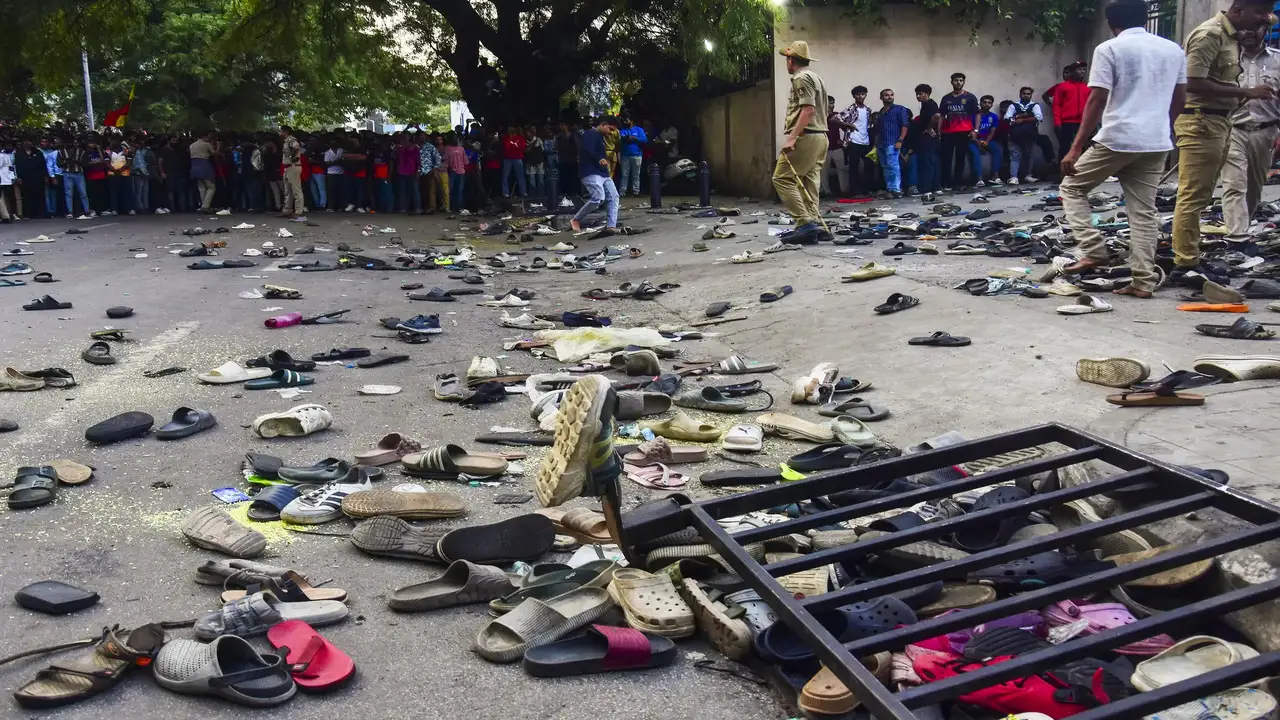Now Reading: Kunal Kamra’s New Parody Video Takes a Dig at Mahayuti Over Maharashtra Assembly Chaos
-
01
Kunal Kamra’s New Parody Video Takes a Dig at Mahayuti Over Maharashtra Assembly Chaos
Kunal Kamra’s New Parody Video Takes a Dig at Mahayuti Over Maharashtra Assembly Chaos

Stand-up comedian Kunal Kamra is once again in the spotlight—this time for a parody video titled Lawbreakers that targets the recent ruckus in the Maharashtra Assembly. The video, blending satire with real footage from the legislative scuffle, questions the behaviour of elected representatives and how quickly such moments are forgotten by the public.
The Incident That Sparked It All
Earlier this week, the Maharashtra Assembly witnessed an intense scuffle between members of the ruling Mahayuti alliance and the Opposition. The visuals—chairs being pushed, MLAs shouting and shoving—spread fast on social media. While many criticised the behaviour, it also became fodder for political memes and commentary.
Kamra’s Take: Parody Meets Politics
Kamra’s video mocks the incident by presenting the legislators as reality-show contestants, complete with dramatic music and cheeky narration. In his trademark tone, he questions how lawmakers who promise governance end up making headlines for physical fights.
The video is edited to mimic a crime documentary, turning the Assembly chaos into a satirical investigation. Kamra suggests that public memory is short, and such actions rarely have lasting consequences for politicians involved.
Why It Resonates
Kamra’s parody isn’t just comic relief—it taps into a larger frustration many citizens, especially young voters in Tier 2 cities, feel about politics. When jobs, inflation, and civic issues dominate everyday struggles, scenes of lawmakers brawling feel like a betrayal of democratic expectations.
The video also reflects how satire has become an accessible way to hold power to account. For many who feel disconnected from formal political commentary, comedians like Kamra bridge the gap between entertainment and critique.
Mixed Reactions, But No Legal Pushback Yet
While the video has gone viral, reactions are split. Supporters praise Kamra for highlighting political hypocrisy, while critics accuse him of disrespecting institutions. So far, no official legal notice or complaint has been filed regarding the video.
This also points to the growing role of digital media in shaping political perception. In a space where traditional media often avoids sharp satire, creators on YouTube and Instagram are picking up the slack.
Conclusion:
Kunal Kamra’s Lawbreakers may be satire, but it touches on a serious question: what kind of accountability exists when lawmakers become lawbreakers? As political theatre becomes more dramatic, content creators are turning it into commentary. For citizens, especially the digital-savvy, this kind of content doesn’t just entertain—it provokes thought.

























